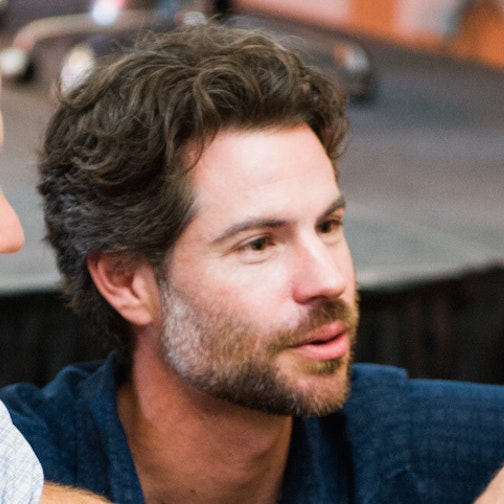Counterterrorism Since 9/11: Evaluating the Efficacy of Controversial Tactics
-
-
Share
-
Share via Twitter -
Share via Facebook -
Share via Email
-
In the wake of 9/11, the U.S. government employed several new counterterrorism (CT) tactics, some of which aroused a great deal of controversy. The controversial tactics included 'enhanced' interrogation, preventative detention, expanded use of secret surveillance without warrants, ethnic/religious profiling, the collection and mining of domestic data, and the prosecution of terror suspects in military tribunals. While there has been great debate over the morality and legality of these controversial measures, there has been significantly less attention dedicated to evaluating whether the tactics work to prevent terrorism. Even so, people on both sides of the security v. morality/legality debate make assumptions about the efficacy of various CT measures. Here we review multiple literatures to assess the efficacy of controversial CT tactics on their own terms, and evaluate their potential utility within larger state security strategies that depend on intelligence management, informant-recruiting, and maintenance of state legitimacy. We find good evidence that controversial CT tactics may have been counterproductive in several ways: increasing the ratio of informational 'noise' to terrorist 'signal,' undermining the state's legitimacy among potential civilian informants, and legitimizing terrorists' preferred status as 'warriors.' In no case is there credible evidence showing that these controversial CT measures significantly helped catch terrorists or offered other strategic advantages outweighing their disadvantages.
Download a copy of the report here.
FAQ
What are the main findings of the report?
The main findings of Counterterrorism Since 9/11 are that there is no credible evidence demonstrating the efficacy of controversial counter-terrorism measures and strong evidence that they do not work and in some cases are counter-productive. The most effective measures are also the least controversial.
How did you conduct this report?
We spent over 18 months reviewing and evaluating the evidence and the best available social science. Our study looked at over 570 evaluations, analyses, reports, articles, investigations and other key documents related to the use of CT tactics. We then evaluated this evidence in light of relevant evidence and theory from the social sciences.
Who are you?
The lead author is Nick Adams, a Ph.D candidate (ABD) in sociology at UC Berkeley. The coauthors are Ted Nordhaus and Michael Shellenberger, Chairman and President of the Breakthrough Institute respectively. Breakthrough Institute is a public policy think tank best known for its work on energy and climate issues. Counterterrorism Since 9/11 is the first of three forthcoming reports by Breakthrough Institute on national security.
How are you defining terrorism and counterterrorism?
We define terrorism as the use of physical violence against non-military human targets with the intention of effecting a psychological reaction in some third party/parties and advancing some policy agenda. Counterterrorism, then, refers to efforts to prevent, block, undermine, or end such terrorist efforts or campaigns.
What are you defining as "controversial counterterrorism measures"?
Enhanced interrogation, preventative detention, expanded use of secret surveillance without warrants, ethnic/religious profiling, the collection and mining of domestic data, and the prosecution of terror suspects in military tribunals.
Why did you write this report?
We wanted to establish a factual basis for policymakers to evaluate U.S. counterterrorism policies.
Wouldn't the 9/11 attacks been prevented had security agencies had the tools they today have at their disposal?
No. None of the controversial tactics were necessary to prevent 9/11, which is also the conclusion of the 9/11 Commission.
What is the evidence these measures are counterproductive?
We find that expanded search and surveillance tools have increased the ratio of informational 'noise' to terrorist 'signal.' Ethnic and religious profiling opens backdoors for terrorists who don't fit stereotypical profiles. Abbreviated due process for terror suspects like preventative detention interrupts investigatory practices capable of yielding much more and better information. Enhanced interrogation techniques produce obstinance and poor information. And military tribunals treat terrorists as the 'warriors' they like to believe they are. To the extent that these policies are targeted at Muslim and Arab Americans, they also degrade relationships that can be important for prevention efforts.
If the controversial tactics in question don't work to prevent terrorism, what does?
All the available credible evidence suggests that citizen informants, foreign intelligence tips, and effective police work have been the keys to disrupting plots since 9/11.
Don't some counter-terrorism and other security officials say that they need these tactics?
Yes, a few security officials have made claims about the efficacy of controversial CT tactics. But they have offered nothing in the way of credible evidence. The most famous example was former Vice President Dick Cheney's claim that the CIA could prove that water-boarding saved lives. But released CIA documents showed the opposite.
What about other officials?
In several Inspector General and Government Accountability Office reports security officials have made highly qualified claims about the efficacy of controversial CT along with admissions that they are unable to offer data or examples clearly supporting them. Since their conclusions contradict so much of the credible evidence, basic social science, and even common sense, we judge those claims as lacking credibility. Given all of this, the burden of proof is on advocates of controversial CT tactics.
What do most security officials believe?
We have seen many security officials reject counter-terrorism tactics in recent years. After using some ethnic and religious profiling shortly after 9/11, many in the FBI and TSA have come to see that form of profiling as a potentially dangerous distraction. Military and FBI leaders have condemned the use of torture, and the CIA has all but renounced enhanced interrogation. Many retired and active Generals, including Gen. David Petraeus, have declared the detentions at Guantanamo Bay a security risk to U.S. troops.
Couldn't there be secret evidence that those tactics work?
We think that would be highly unlikely for several reasons. First, one of the findings of our research is that controversial CT tactics do not work for basic sociological and psychological reasons that are unlikely to change. Second, while CT is often imagined as a shadowy, secretive enterprise, much of how CT functions is known through years of court cases, news coverage, congressional testimony, books by high-ranking government security figures, investigative journalism, extensive leaks and declassifications, and countless government oversight reports. It is improbable that all of the credible evidence for the efficacy of controversial CT is secret and that only the evidence for its inefficacy has become public.
Couldn't some controversial CT tactics have a deterrent effect?
That is highly unlikely for several reasons unique to each tactic. But there is plenty of evidence showing that terrorists do not choose their targets based on the CT tactics of targeted states anyway. The UK, home of ubiquitous surveillance (often in the form of closed circuit television) has certainly seen its share of devastating attacks. Israel, of course, has been a highly popular target despite very aggressive search, surveillance, and profiling policies and a hyper-aware society. And of course, terrorists have operated alongside and within insurgent armies in Iraq, Afghanistan, and Pakistan despite the presence of hundreds of thousands of U.S. and NATO troops and intensive human and signals intelligence efforts.
Doesn't racial profiling work in Israel?
No. Some observers attribute the security successes of Ben Gurion International airport (in Israel) and El Al airlines to behavioral profiling rather than to the other multiple layers of security they employ. But to make such claims, observers would have to separate out and measure the effects of profiling policies by themselves, which they have yet to do. However, a recent article in Nature reviewing studies of human efforts to reliably detect 'mal-intent' in others concludes that the techniques are ineffective and unreliable. One of us even knows a person who - for research purposes - has successfully lied to Ben Gurion's airport interrogators multiple times. The conclusion that airport questioners are the key layer of defense appears to be significantly overdrawn.
Might NSA data-mining programs work someday if we give them enough time to develop?
NSA data-mining programs seeking to pick potential terrorists out of the crowd, as "CT Since 9/11" explains, require massive amounts of data so computers can train themselves to distinguish between terrorists and non-terrorists. Unfortunately, the data required for such a project simply do not exist in digital form. There are too few terrorists to create a 'training set' the computer can use to learn about their behavior, and virtually all of their behavioral/transactional data (e.g. their purchases, addresses, email and telephone communications, etc.) are entirely innocuous and functionally identical to that of non-terrorists. The NSA should continue to monitor known terrorist websites, email addresses, and phone lines as it has done for years, but broad information collection and data-mining programs will never bear helpful fruit. Worse, chasing that illusion is only adding to the problem of informational white noise drowning out the signals of terrorist activity.
Preventative detention and 'enhanced interrogation techniques are not even used anymore. Why do you write about them?
Even though these tactics are rarely if ever used anymore, there is still a widespread misunderstanding that they were useful when they were employed. In the wake of any future attack, it will be important for policymakers to know that no matter how urgently and deeply they wish to reduce the threat of follow up attacks, these tactics will not help them in their efforts.
Don't you think that a ticking time bomb scenario could justify torture?
The ticking time bomb scenario is a highly improbably hypothetical scenario that has never come to fruition and almost certainly never will. And even within the confines of this extremely improbable scenario, a tortured terrorist would only need to resist abuse (or send investigators on a goose chase) lasting long enough for the ticking bomb to detonate. There is little reason to believe that reality would play out as the writers of television programs have envisioned it. The available evidence from sociology, psychology, and history suggests that the most reliable interrogation methods avoid adversarial relations. Most experienced interrogators like Stephen Kleinman and Matthew Alexander testify to this.
If there have only been fewer than five military commissions, how can you 'scientifically' claim that they are ineffective? Don't we need more data (i.e. more military trials)?
It is true that little experimental field data exist with which to judge the efficacy of military commissions. However, these are not the only data which may be useful. By identifying the differences between military commissions and their Article III Court counterparts, and analyzing their likely consequences, we may draw conclusions about the relative efficacy of the two trial venues. The key differences relate to the juries used and the optics of the trials for global audiences. (Before 2009, military commissions also would have differed in their allowance of hearsay testimony and testimony produced under physical duress.) Both of the existing differences appear to work to the benefit of terrorists' prestige in military commissions by elevating them to the status of 'warriors' and peers of military officers.


